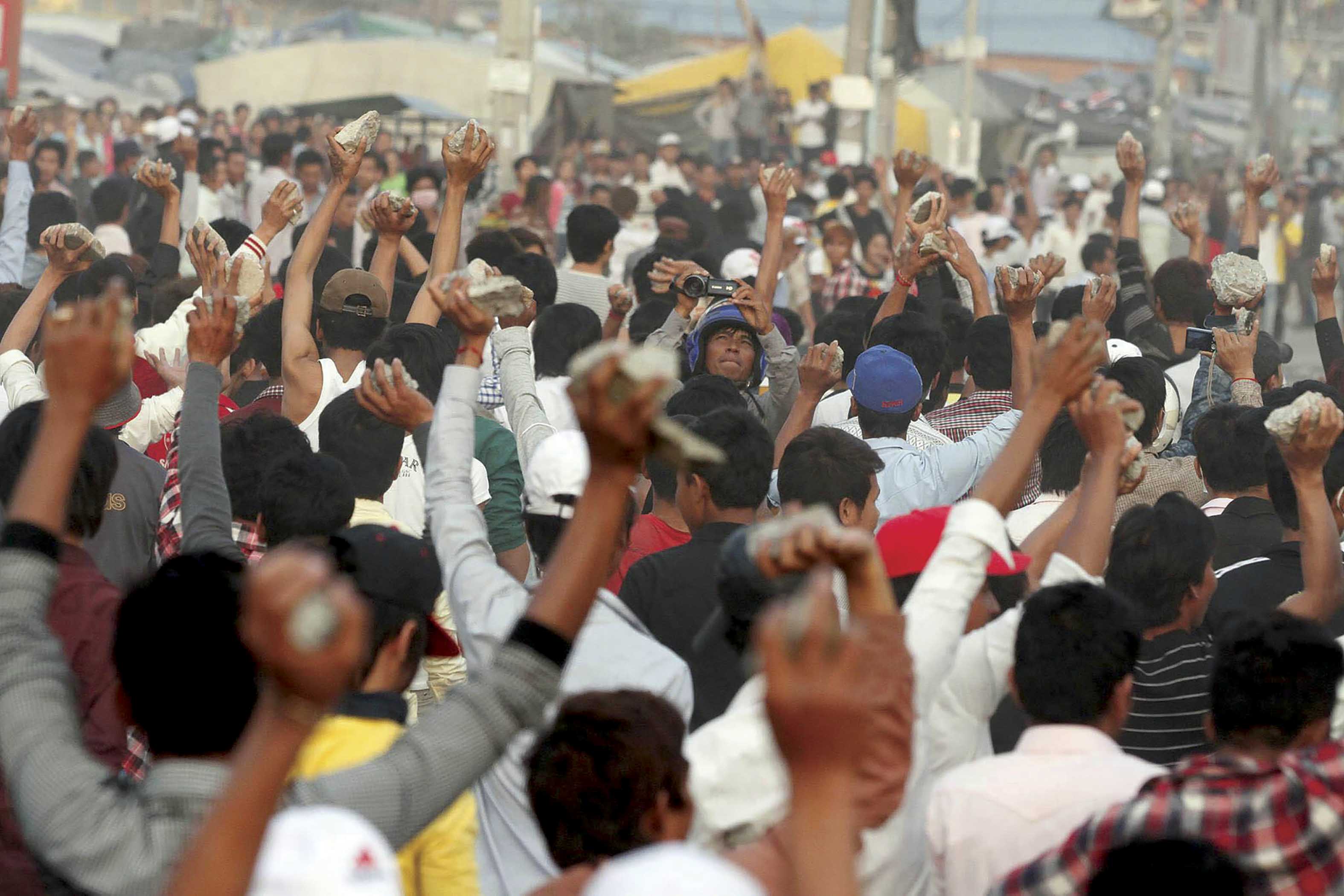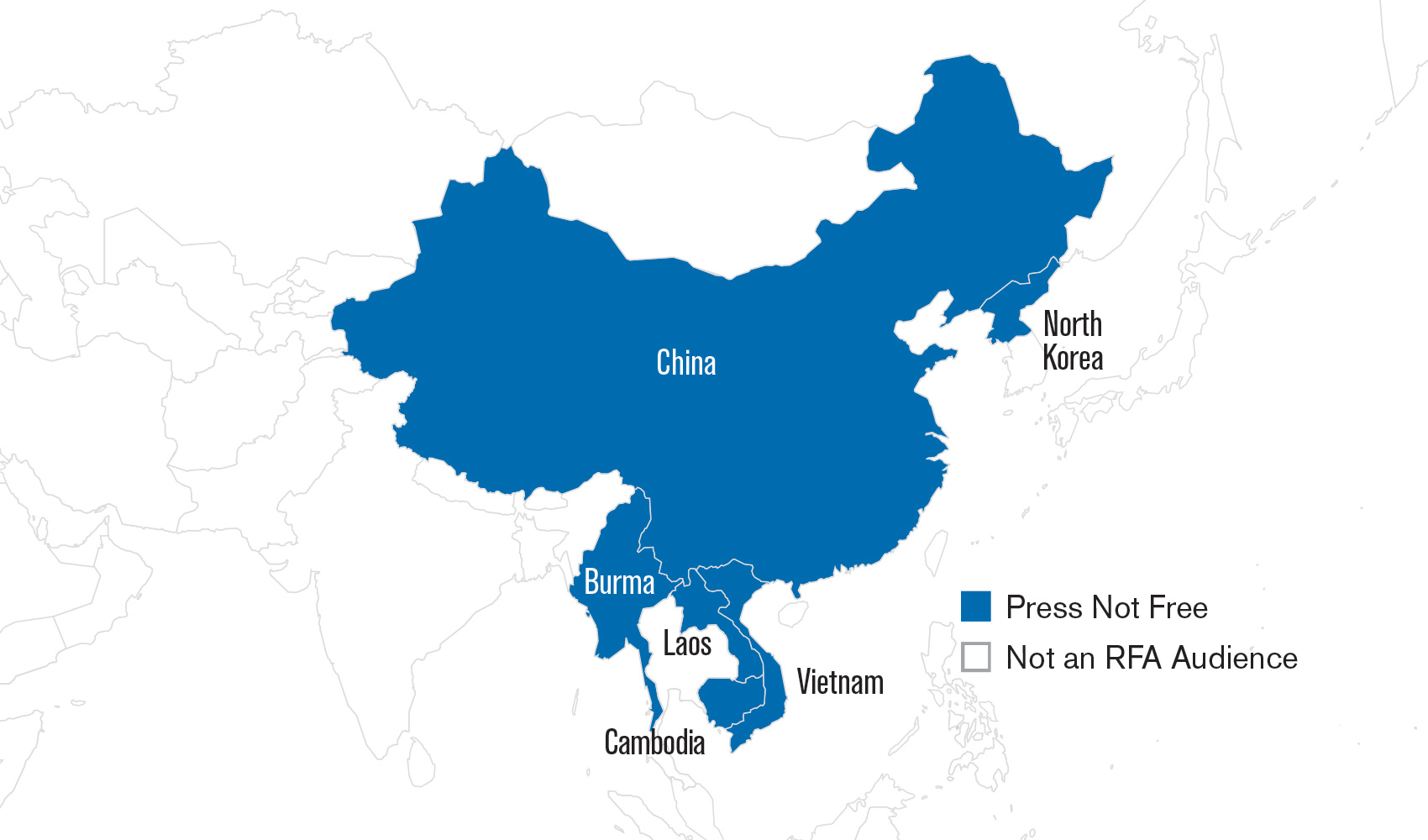
Radio Free Asia
RFA reaches its target audiences in nine languages in six countries: China, North Korea, Myanmar, Cambodia, Laos, and Vietnam, providing them with uncensored, fact-based local news. Through online video, television, satellite, social media networks, and digital content, in addition to shortwave and AM radio broadcasts, RFA delivers unique, professional journalism and a wide range of voices, opinions and perspectives from within Asia.
Headquartered in Washington, D.C., RFA has seven overseas bureaus and a vast network of correspondents. Call-in programs, multimedia reports, and interactive websites offer audiences an open forum in which they can freely express views and ideas. RFA is funded through, and operates under, a grant agreement with the BBG. Following strict journalistic standards of objectivity, integrity, and balance, RFA also serves as a model for its target countries’ emerging journalistic traditions. RFA’s reports are frequently cited in reports in The Wall Street Journal, New York Times, Washington Post, Reuters, Associated Press, Agence France Presse, Chosun Ilbo, NHK, Al Jazeera, Ming Pao, and BBC, among numerous other domestic and international outlets.









